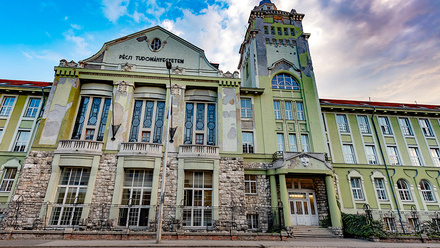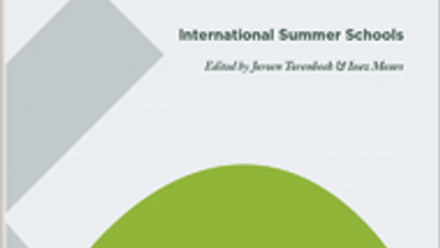Short-term international mobility: Transformative or touristic?

There is plenty of debate regarding the merits or otherwise of short-term student mobility. It is common for both researchers and practitioners to be sceptical of short-term student mobility, some even dismissing it as tourism. However, recent reports provide evidence that short-term mobility may confer greater benefits in terms of some intercultural skills than longer-term mobility. The author of this blog considers the critique of short-term mobility. He discusses whether the critique is valid, and argues for a more holistic view of short-term mobility, highlighting elements of best practice.
Little more than glorified tourism
International education literature sometimes has a tendency to be disparaging towards short-term mobility, and both researchers and practitioners are quick to evoke images of mass tourism. Numerous writers have likened short-term student mobility to tourism, urging us to ‘go beyond the tourist gaze’. Practitioners are urged to avoid the words ‘trip’ and ‘tour’ at all costs. This ‘academic tourism’, defined as ‘disinterested viewing for pleasure’, has even been accused of reproducing global inequalities.
The implication is clearly that short-term mobility is a superficial activity by which groups of students passively gaze at destinations as mass tourists. The environment and culture of the destination are commodified and objectified, and there is no attempt to engage actively with the culture and develop intercultural competencies.
An opportunity to develop intercultural competencies
However, recent research by the Institute of International Education (2017), suggests that intercultural skills such as curiosity, work ethics, and leadership are unaffected by length of international experience. Short-term mobility was found to outperform study abroad in developing team-working skills. My own qualitative research presented at the Royal Geographical Society International Conference (2017), suggests that while mobile students sometimes adopt a touristic role, this is rarely superficial ‘sightseeing’.
Students frequently engage in performative and embodied interactions within the destination and culture. Students emphasised interactions with local people, and ways in which they had developed intercultural competencies, including communication, interpersonal skills, empathy and knowledge about other cultures.
Studies such as Langley and Breese (2005) have shown how travel is integral to the ‘out of class experiences’ of students, particularly interactions with local people. The researchers also noted a reluctance to consider the international student as a ‘whole person’. In this case study of US students visiting Ireland, directed travel provided factual knowledge of Irish culture, while ‘serendipitous travel’ provided the opportunity for ‘informal observation, and the development of self-esteem and independence’.
Travel is integral to the ‘out of class experiences’ of students, particularly interactions with local people.
The way forward
It seems to me that a simplistic education – tourism construct could be a false dichotomy. As an international education manager and a human geographer, it strikes me that rather than moving beyond tourism, we need to move beyond simplistic assumptions regarding experiences of place and culture. Working for a university with more student mobility than most, I frequently experience the transformative effect of short-term mobility on students.
The development of intercultural competencies appears to be optimised when the trip combines several key elements:
1. Academic partner visit
A visit to one or more quality academic partners in the destination is important, creating opportunities for students to interact with international colleagues. This is particularly effective in providing opportunities for teamworking and collaborative working. Coventry students currently work collaboratively with colleagues in a range of partners in Europe, the Middle East, and Southeast Asia, developing important intercultural competencies.
2. Embedding short-term mobility into modules and courses
The transformative effects are likely to be optimised when short-term mobility contributes to the learning outcomes of modules and courses. This implies tailoring study visits to specific courses and years. In some modules/units, it will be possible to use short-term mobility to provide the teaching and learning activities, and to structure assessment around the visit.
3. International volunteering
For some subject areas such as event management, international volunteering at major conferences and events can be a great way of developing both intercultural competencies and work-related skills. Coventry students, for example, have worked at locations around the world for both Going Global (British Council) and the EAIE Annual Conference and Exhibition. Recently, we’ve extended short-term volunteering opportunities to students from a range of subject areas.
4. Company or organisation visit
Whether it’s a visit to an innovative small and medium-sized enterprise (SME), the headquarters of a multinational corporation, or a professional body, the experience can be invaluable. These visits often provide an opportunity for students to interact with employees and managers, developing intercultural skills. Such visits enable students to experience how business is conducted in different cultural contexts, and can be inspirational to students.
5. Cultural tourism
Not the passive sight-seeing variety, but rather an active, embodied and performative engagement with the culture and landscape of the destination. After all, what’s the point of travelling halfway around the world, if students don’t get to experience the place? The tourism in my own research and practice includes activities such as students representing their own culture within a multicultural carnival parade; participating in a desert safari in the United Arab Emirates; exploring the landscape, wildlife and culture in South Africa; and sampling/helping to cook local street food in Kampung Baru (Kuala Lumpur, Malaysia).
What’s the point of travelling halfway around the world if students don’t get to experience the place?
Keeping an open mind
I feel sure that we would discourage our students from clinging to generalisations and stereotypes. Maybe we should do the same concerning short-term mobility. It matters less what we call it, and more what kind of experience we facilitate for our students. This implies taking a holistic approach to the experiences that we provide, taking a holistic view of the people that we are trying to benefit, and valuing the culture and the landscape of the destination.



